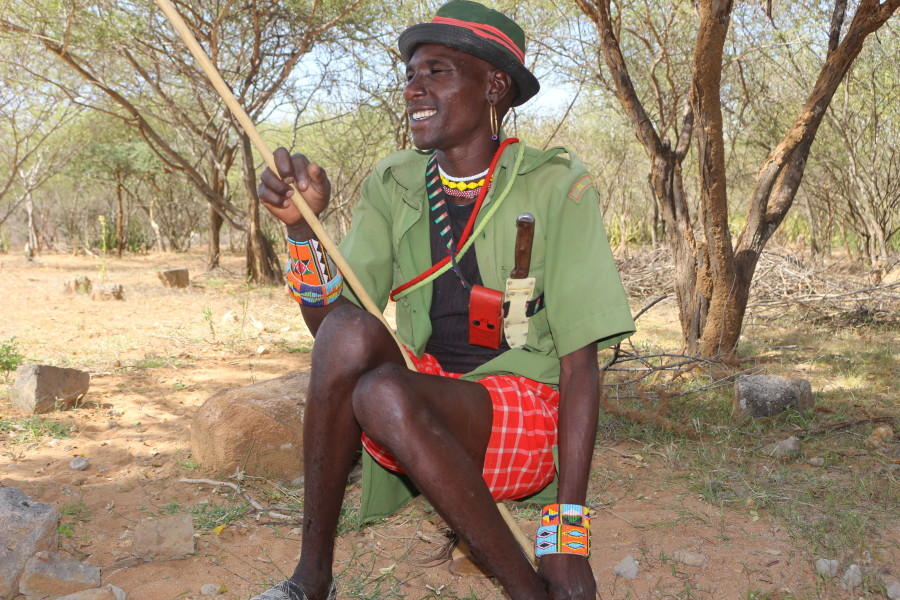The vast plains of Masol, located within the larger Sigor Constituency in West Pokot County, has traditionally been synonymouswith banditry. This area, that is known for its rich pasture and abundant water courtesy of river Weiwei, has a great agro-pastoralism potential but this has not been exploited because of the h sporadic incidents of cattle rustling, banditry and perennial savagery. Masol borders Turkana South, making it a battleground for Pokot and Turkana warriors, who adore their livestock like nothing else in this world, yes, of-course in addition to the “Almighty” and the AK 47 rifle that often define masculinity in this part of Kenya.
For decades, the inhabitants of this semi- arid region have known no peace; constantly witnessing a flurry of cross-border cattle raids between the Pokot and Turkana communities. Wars have been fought here, livestock stolen and substantially countless lives lost; but not any more since a group of reformed warriors resorted to champion for peace in the region. A catholic priest in Sigor trading centre once opined that cattle have been stolen and restolen in this part of Kenya that we may need a commission of inquiry to determine the original and rightful owners of the large herds in the border area.
To get to Sigor trading center, one has to swerve through the windless corners across the Kapenguria mountains (the end tail of Cherangany hills) down to the narrow valley past Mouphous hill that is almost a gorge. “Here, we rarely experience rainfall, for better part of the year. It is the scorching heat and squall of wind that often owls across the landscape carrying with it brown blur of dust, hence the drought,” says Kakuko Pkukat, one of the reformed Pokot warrior.
The site at Sigor presents an enormous contrast from the relatively visible, green caped- hills inhabited by Turkana herders.
Sitting on a one – legged semi-portable traditional stool or headrest and leaning his skinny arms while stretching his legs on the brown, sun-scotched grass and tuff beneath the solitary pine trees that are the only source of shade, Pkukat reflects on the incident that changed his life from a bandit to a peace crusader. The stool or headrest is typical among the pastoralist communities and is used by a man who shepherds cattle. According to Pkukat, it is made in a form that makes it hard for the shepherd to fall asleep while grazing the cattles in the fields.
“For more than 15 years my friends and I had known no other source of livelihood apart from cattle rustling and highway banditry” He narrates. “We had no choice because as men, we have to provide food for our families” he adds.
His story is no different to that of Timtimo Loyoro, a survivor who confessed that he practiced cattle rustling as a tradition, but abandoned the barbaric vise after a near-death experience between the Pokot and Turkana border conflict in which he actively participated.
“The tale of my life would have been different now if I had not taken the bold step to avoid banditry and choose a honest way of making a living “, reflects Timtimo.
Timtimo and Pkukat are among a group of more than 30 youth with a strong resolve to address the punitive culture. The group, which has resorted to become peace emissaries and role models to their peers are grateful for the efforts made by the Africa Rangelands Trust (ART) -a community based organization based in West Pokot County that is working towards lasting peace in the region.
“We are committed to changing the negative perception of the West Pokot region that has long been associated with cattle rustling, banditry and inter-ethnic conflicts.” says Joseph Chekeruk,the organizations’ Executive Director.
Joseph says that through the Peace, Security and Stability Program, the peace efforts in the region are slowly paying off.
“The peace forums and awareness creation that we are conducting is one way of ending cattle rustling and conflicts among the locals. Our leaders need to be sincere in their endeavor to foster reconciliation and peace”, says Joseph.
Joseph explains that the new county leadership in West Pokot has been reaching out to their counterparts in Turkana, heralding a new opportunity and political goodwill of finally ending this age old vice that has been blamed for the underdevelopment of the border areas between the two counties.
“When the community members, particularly elders and warriors see leaders rushing to a conflict zone, shaking hands and publicly promising to flush out the cuprits, they know that the era of elders inciting and protecting the community against accussations of cattle rustling are over”, he added. “This gesture will definitely embolden our peace building efforts in Sigor”, says Joseph
According to Lemiu Tomom, a 35 year old reformed Pokot, the reformed group of warriors who currently operate a boda-boda transport business, can now boast of a honest way of earning income.
“We have earned respect from the community, and we can now sermonize peace messages during public forums, ” explains Tomom.
Through the Peace, Security and Stability Program, Act! with support from the Royal Danish Embassy in Kenya, is working with partner organizations like Africa Rangelands Trust and National and County governments agencies to effectively contribute to improved security and peaceful co-existence within and beyond the national borders.
The overarching aim of the programme is to create conducive enviroment for developing and implementing coherent national security policies, action plans and strategies as well as countering violent extremism.























